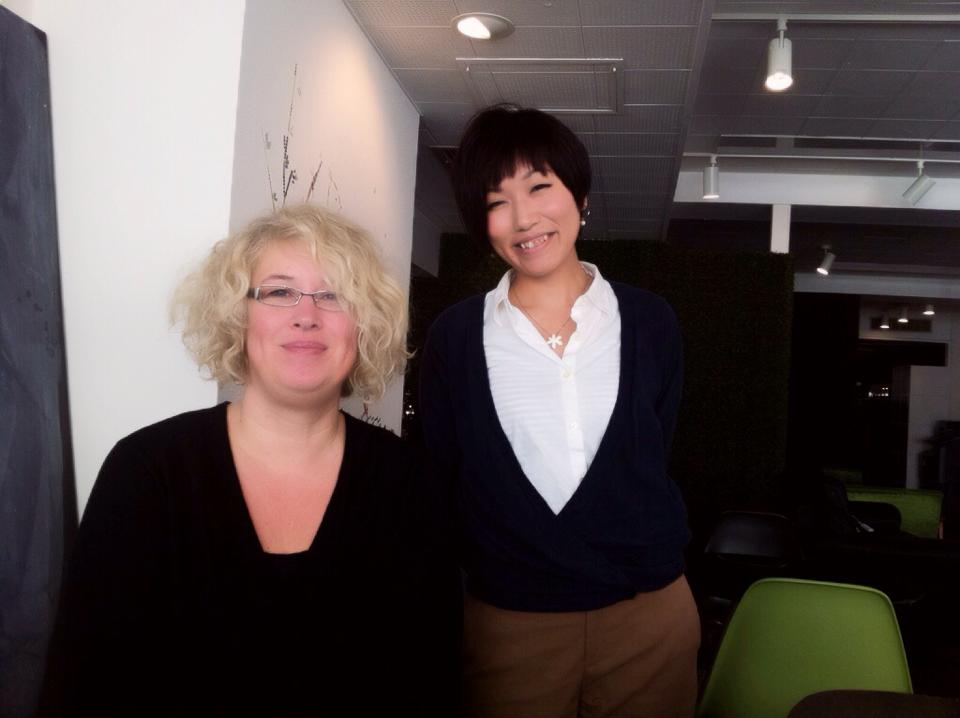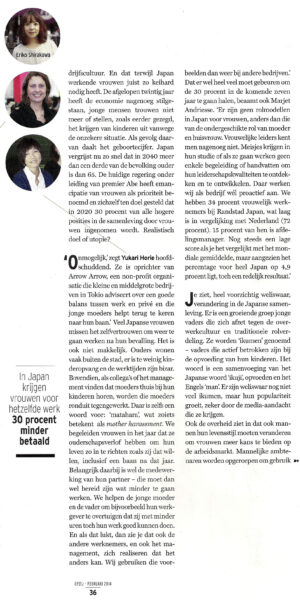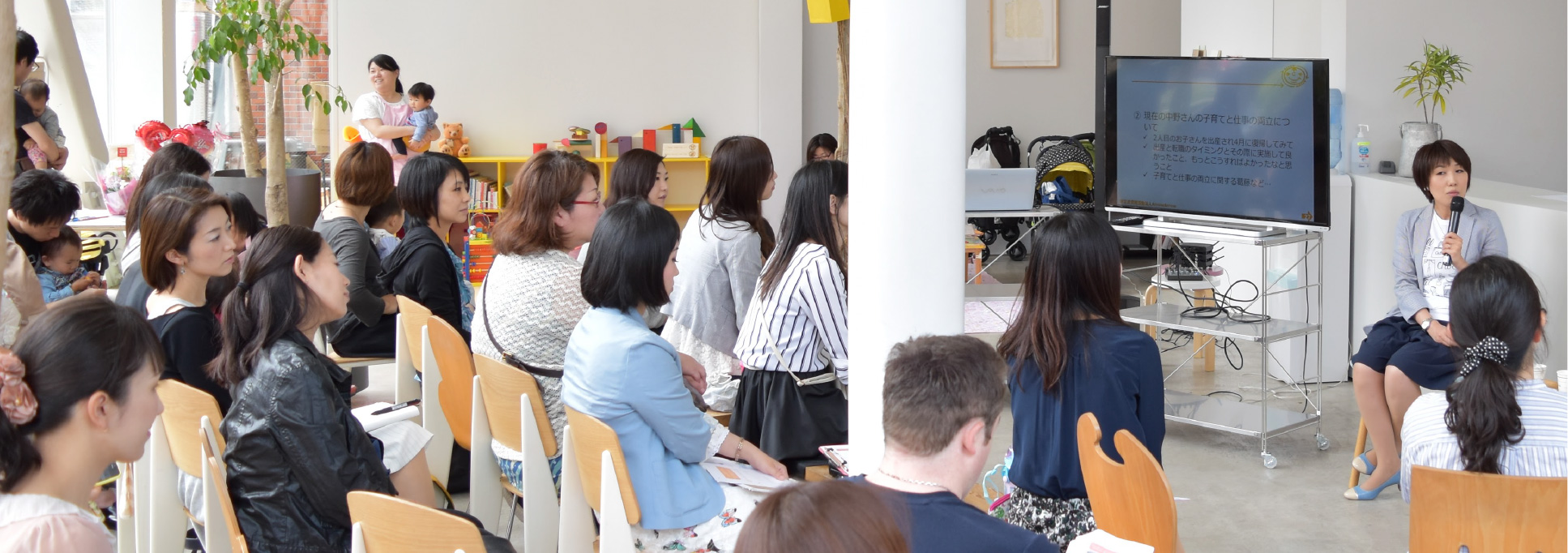先日オランダのフリーランスライターでありますIngrid Houtkooperさんに日本のワークライフバランスの取材を受けました。特にオランダと日本の女性解放と労働に焦点をあてて、女性と男性が家事・育児・仕事をどうコンバインするかという問題に迫ったインタビューとなりました。

そのIngridさんの記事がオランダの女性オピニオン雑誌であります「Opzij」に掲載されました。
http://www.opzij.nl

記事はオランダ語での記載となっていますため、以下英語に記載を変換しています。
ーーーーーーーーーーーーーーーーーーーーーーーーーーー
Impossible, says Yukari Horie head – shaking.
She is the founder of ArrowArrow , a nonprofit organization that small and medium-sized undertakings at Tokyo advise on a good balance between work and private life and helps young mothers to return.
to their jobs: Many Japanese women lack the confidence to go back to work after childbirth. It is also not easy. Parents often live outside the city, there is a lack of childcare and working hours are bizarre. Moreover, as colleagues of the management finding that belong mothers with their children, mothers who are downright opposed.
There’s even a word for it: ‘ matahara : which means something like mother harassment. We assist women in her job they have parental leave in such a way as they would, including a job after that year their lives. An important factor is the king employees of their partner – which must then be less willing to work.
We help the young mother and father, for example, to convince them that they are still able to do their job properly. Less hours of their employer and if that works, then you can also see that the other employees, and the management, realize that things can be different. We use these examples then other companies: That there is a lot to be done every 30 percent over the next seven years to get it, also agrees Marjet Andriessestraat . “There are no role models for women in Japan, unlike that of the subordinate role of mother and housewife. Women leaders know they hardly. Girls get in their study, or if they are going to work any guidance or the tools to discover and know to develop their leadership skills. As a company we do work proactively.
We have 34 percent of female workers at Randstad Japan, which is low compared to the Netherlands (72 percent) . 15 percent of them department manager. Still a low score when you compare it with the sample bal average, but since the rate for the whole of Japan is 4.9 percent, still a reasonable result:
you see, very careful indeed, change in the Japanese together
Society. There is a growing group of young fathers who speaks against the long hours culture and traditional division of roles. They are ” ikumen ‘ called
– Fathers who are actively involved in the education of their children. The word is a combination of the Japanese word ‘ Ikuji : educate and English ‘ man ‘. While there are not many ikumen , but their popularity is growing, especially by the media attention they get.
The government recognizes that man’s need to change their lifestyle women are more likely to bid on the job market.
ーーーーーーーーーーーーー
オランダでは「ワークシェアリング」という形で勤労者が労働を分け合う概念がありそれぞれの労働時間を短くして働く働き方が導入されています。
働き方自体をフルタイムかパートタイムかを選べ、さらにパートタイムとフルタイムで働く人の待遇に大きな差がないところからも、女性の就業率の高さ、ひいては育児・仕事の両立が展開されていました。
ただ、そのような働き方を選択しているオランダであっても日本の抱える問題と同様に「ワークシェアリング」で男女の仕事感に差異がなくとも、女性が家事育児を担うことの概念は根強い、という見解もIngridさんからお話いただきました。
お互いの国、文化、概念の共通と差異とが見られた時間を共有させていただきました。
この度は貴重な取材の機会をいただき、本当にありがとうございました!


